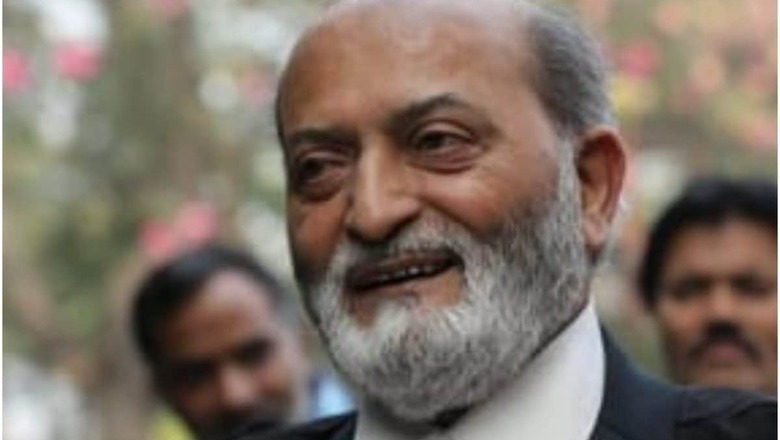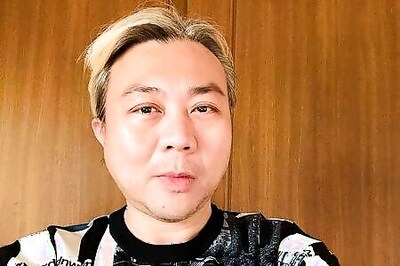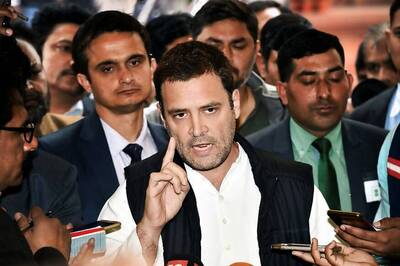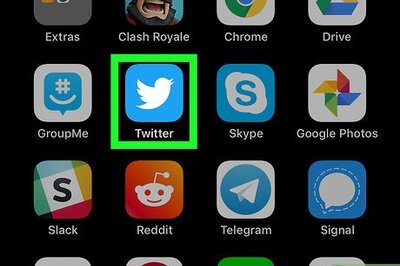
views
Advocate Zafaryab Jilani, the man who became the face of the Muslim side in the long-drawn legal battle of the Ram Janmabhoomi-Babri Masjid title suit, breathed his last in Lucknow on Wednesday afternoon. Jilani was 73 years of age and had not been well for quite some time following a brain stroke.
With the century-old dispute of Ayodhya being settled in favour of the Hindu side by the Supreme Court in its historic judgement of 2019, the focus shifted from the legal battle, and Jilani too distanced himself from public life. It was almost like hanging up of his boots by the man who had spent almost his entire life for a single cause of fighting for the Babri mosque through the legal process.
Back in November 2019, when the judgement was delivered by the Supreme Court, Jilani was no doubt disappointed but also calm. Speaking to this reporter, he had said, “I am now a man at peace. Whatever might the judgement have been, as an advocate, for me it is no more of legal manoeuvrings and court dates.” The crusader in Jilani as the convener of the Babri Masjid Action Committee was surely downcast but the lawyer in him was at ease.
In Lucknow, barely two hundred metres from the Uttar Pradesh chief minister’s office, at the imposing Lok Bhawan building is located the legal chamber inside the Islamia Degree College where Jilani had spent years immersed in files and books related to the Babri mosque and Ram Janmabhoomi dispute.
For scribes like me, his chamber was one of the most frequently visited spots in the heyday of the Ayodhya dispute. A busy Jilani never complained about sharing his time and explaining to us the nitty-gritty of the complex legal matter, updating us with the developments in the case.
Towards the end of the final hearing in the Supreme Court sometime in October 2019, Jilani told us, “I am more relieved because not many are so aware of voluminous information, legalities and minutest of details involving the case. For anyone else to pick up the threads of the proceedings in the case spanning over decades will be a mammoth challenge after me.”
He was absolutely right in his assessment. Jilani’s first brush with the legal battle of the Ram Janmanhoomi-Babri Masjid title suit came in 1975 when he had just started legal practice at the Lucknow bench of the Allahabad High Court, after obtaining a law degree from the Aligarh Muslim University.
Jilani once told me that he first became acquainted with the matter in 1975 when certain petitions related to the receivership of the disputed site were filed with the Allahabad High Court. Some senior members of the Awadh Bar Association at the Lucknow bench of the HC felt that the jurisdiction of cases from Faizabad was with the bench at Lucknow and not the main bench in Allahabad.
This led the Awadh Bar Association to file a petition with the high court. Jilani was one of the signatories. Ultimately, the matter was transferred to the Lucknow bench in 1977. However, even after this, there wasn’t much attention on the case. Jilani once told me, “I myself was not aware that the matter got listed regularly and my name was on the list.”
It was the late 1970s, when the Ram temple movement had not yet gained traction. And the Ram Janmabhoomi-Babri Masjid dispute was still a few years away from becoming a defining religiopolitical controversy in contemporary India.
It was only in 1983, after the Vishva Hindu Parishad carried out a Rath Yatra in favour of the Ram Mandir, that some on the Muslim side started preparing to put up a challenge. Jilani had once in a conversation with me recalled, “A few others and I, after being directed by the Muslim Personal Law Board, got down to preparing notes from history books, Baburnama, and other available resources. A 12-page note on the matter was prepared and was first circulated among the board members, to give them an idea about the evolution of the Babri mosque, and historical and legal aspects related to it.”
In February 1986, following the Faizabad district judge’s order to open the locks on the mosque, the Babri Masjid Action Committee was formed with the intent to start a campaign in support of the shrine and take on the rising wave of Hindutva. Jilani became the convener of the committee.
Since then, Jilani’s was a life dedicated entirely to the cause of the Babri Masjid. The mosque was demolished on December 6, 1992, by a mob of right-wing activists, amid allegations of larger conspiracies being hatched by the then Kalyan Singh-led BJP government in the state and “suspicious silence” of the Congress government at the Centre. It also triggered a role reversal for Jilani. The advocate, who had been more of an activist in the pre-demolition era, spent most of his time in the black robes after it.
He became the leading advocate for the Sunni Central Waqf Board and other Muslim litigants in the case. Over the years, he also emerged as eyes and ears to the case for the All India Muslim Personal Law Board (AIMPLB).
In 2012, when the Akhilesh Yadav-led Samajwadi Party came to power in Uttar Pradesh, Jilani was appointed the additional advocate general of the state. The new responsibility as a top government lawyer didn’t dent his commitment to the Ayodhya case.
The man never had any regrets for having dedicated so much time to the case, which may have been rewarding in terms of name and fame, but surely came at the cost of bigger prospects of a profitable practice.
In the days following the Supreme Court judgement, I had once asked Jilani about his future plans. He had then said, “Life will not be the same as before. I plan to focus more on my practice. My first priority will be those cases that have been pending on my table over the past few months as the Supreme Court went into day-to-day hearing of the Ayodhya title dispute.”
Unfortunately, Jilani didn’t get much time to soak in his newly acquired peace. A year and a half after the Supreme Court verdict, he had a massive brain stroke in May 2021. Since then, he was never the same again. Almost confined to his bed, Jilani was cut from active and public life.
The Lucknow native also made it his ‘karmabhoomi’, and working from here gained national and international recognition by dedicating himself to the cause he believed in.



















Comments
0 comment